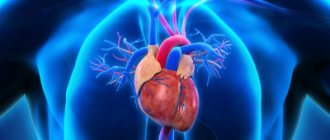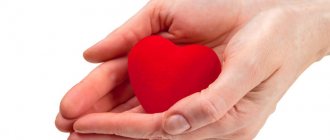Common symptoms and signs of depression
A sad mood occurs in all people and passes quickly. If depression continues for a long time, then we can assume that the disease has begun to develop. Moral exhaustion drags on for a long time and does not allow a person to feel all the delights of life. Communication, hobbies, and work are no longer a pleasure. With such well-being, people think that no one needs them. Sometimes depression is accompanied by a desire to die. So the person himself has a very low probability of getting out of this state. Everyone should understand that they cannot do without the help of a specialist.
Sick people have common symptoms: loss of mood, memory impairment, unreasonable fear, panic attacks, problems with libido. If all these symptoms are observed at the same time, then there is a possibility of depression. During illness, some people are concerned about the question: is it possible to die from depression and neurosis? This is possible, but in very severe cases.
Most people believe that illness of the soul is a consequence of some kind of emotional shock. On the one hand, this is true. Experts understand the disease as somatic, reactive and endogenous depression. The first is a disease, most often caused by some other serious illness. Treatment begins with eliminating the disease that caused the depression. As for the reactive type, it is a reaction to some events in life that have traumatized a person. For example, the death of a loved one, separation from a significant other, deterioration of life, and so on. Endogenous depression is a fairly rare disease. Experts believe that it appears in people who are genetically predisposed to it.
What types of illness are deadly?
Any form of depression, if left untreated, is potentially dangerous and can be fatal.
The danger of depression depends not so much on its form, but on the severity and duration of its course.
However, there are some forms of depression that deserve attention:
- Hidden. Symptoms of classic depressive disorder - despondency, a feeling that everything is meaningless, loss of interest in communication and hobbies, apathy - are not typical for her. Somatic symptoms come to the fore, manifesting themselves in the form of headaches, changes in blood pressure, dizziness, weakness, heart pain, and disturbances in the functioning of the gastrointestinal tract. But doctors specializing in somatic pathologies find nothing, and the disease continues to progress.
In some cases, it accompanies a person throughout his life, significantly shortening it.
The severity of depression and its duration are of great importance when assessing risks.
If depression is mild or moderate, its effect on the body is quite mild, but the more severe it is, the higher the risk of suicide and the stronger its effect on physical well-being.
Types of symptoms
People often experience strong feelings of anxiety and sadness. They feel forgotten, helpless, joyless. Those suffering from the disease are very irritable, dissatisfied and see no point in living further. The most commonly observed symptoms are:
- Loss or decreased appetite.
- Deterioration of sleep: nightmares, difficulty falling asleep, frequent awakenings, fatigue after sleep.
- Dissatisfaction with usual actions.
- Loss of interest in almost everything.
- Feeling tired, lacking strength even for the lightest work.
- Problems with concentration.
- Severe pain in the chest and heart.
- Dyspnea.
What is depression?
Experts define this disease as a general disorder of the entire body, which can reduce the ability to work and bring pain and suffering to life. In some cases, the disease leads to death. Is it possible to die from depression and neurosis? Definitely yes.
It develops due to a lot of stress, constant competition, failures, and difficult financial situations. The disease disrupts the entire biochemistry of the brain. People often have a genetic tendency to depression.
The disease may occur episodically; it does not necessarily have to last for a long time. There are also severe types of depression. During them, a person isolates himself from society, does not go out and does not plan to undergo treatment. At such moments, some people think: is it possible to die from depression? If you don’t take action to recover, then it’s possible. The disease is very serious.
Living Dead. What is “psychological death”?
Is it possible to die from depression, neurosis or melancholy?
You cannot die directly from the symptoms that accompany depression, neuroses and other mental illnesses, but they entail disturbances in a person’s physical condition: they lead to exacerbations of his chronic diseases, contribute to the development of hormonal abnormalities, undermine the immune defense, and adversely affect everything. organs and systems of the body.
According to a long-term study by foreign scientists, even moderately severe depression significantly increases the likelihood of early death. Moreover, women have a higher risk of dying early than men, amounting to 50%.
Depression worsens a person’s overall quality of life and has an extremely negative impact on his life in society.
For example, if a single person with a serious chronic illness becomes depressed and loses his job due to inability to cope with responsibilities, he may die from the consequences of his chronic illness because he will not have enough money to buy necessary medications and strength to go to the doctor.
The effect of depression on a person’s physical condition:
- Disturbances in the functioning of the cardiovascular system. Depression aggravates the course of existing diseases of the heart and blood vessels and can lead to the development of new ones, such as arrhythmia, tachycardia, and coronary heart disease.
It also increases the likelihood of myocardial infarction, especially in older people, and increases the risk of dying by 20% in the first six months after a heart attack. 40-65% of people in the post-infarction period suffer from depression, so during the recovery period it is important that the person feels as comfortable and protected as possible and receives psychotherapeutic help if necessary.
Oncological diseases. A quarter of people with malignant neoplasms suffer from various types of depressive disorders, which developed due to the severe psycho-emotional shock they experienced when they learned that they were sick. In addition, many cancer patients suffer from other mental disorders, such as PTSD, anxiety and panic disorders.
Depression undermines the functioning of the immune system, so the likelihood of a positive outcome is significantly reduced: the tumor grows more actively, and severe infectious diseases develop more often.
Also, depression during remission increases the risk of relapse.
- Reduction in brain tissue volume. This is especially true for people over 60-65 years old: a study that involved brain scanning found that older people with depression had smaller areas of the brain than those who did not suffer from the disease. Also, depression observed at a younger age increases the risk of Alzheimer's syndrome, dementia, and stroke later. And the longer and more severe the disease, the higher the risk.
- Diabetes. About 20% of people with diabetes also suffer from depression. This combination of diseases is extremely dangerous because a depressed person is not able to lead a lifestyle that allows him to control diabetes. Therefore, the likelihood of developing diabetes complications such as kidney failure, vascular disorders, cataracts, neuropathy, and diabetic foot increases. Depression also increases the risk of developing diabetes in those who do not have it.
- Obesity.
A person with depression has an almost 60% increased likelihood of becoming obese, because during a depressive disorder the perception of food changes, and the person either eats very little or a lot of it. Also, the accumulation of body fat is influenced by the hormone cortisol, which is produced more actively during depression. - Migraine. In people with depression who suffer from migraine pain, the frequency of attacks increases three times, the effectiveness of treatment, on the contrary, decreases, and regular pain further aggravates the depressive state.
Other factors influencing mortality in depression:
- Eating disorder. Depression can lead not only to obesity, but also to exhaustion when a person eats very little. This causes problems in the functioning of the gastrointestinal tract and other body systems, and the development of vitamin deficiencies. Also, a depressed person can switch to food that does not require long preparation (BP noodles, fast food, semi-finished products) and is harmful to health.
- Tendency to drug addiction and alcoholism. Depressed people may try to find a cure for their condition in drugs (including alcohol), but this only leads to addiction and difficulties in real life, an increase in the number of health problems, and depression only gets worse.
- Low mobility. Apathy, characteristic of a depressive state, becomes the cause of physical inactivity, which also adversely affects physical well-being: blood circulation is disrupted, metabolism slows down, diseases of the joints and cardiovascular system develop, excess weight appears, and the likelihood of a heart attack, stroke, and atherosclerosis increases.
- Problems with cognitive functions. A person with depression has deteriorating memory and thinking, and it is more difficult for him to concentrate. This complicates his work as a specialist and increases the likelihood of mistakes. If his work is associated with a risk to life (a vehicle driver, a worker involved in various hazardous industries, a miner, a firefighter, a policeman, a military man), such problems can cause death or disability.
It is also worth mentioning suicide in depression: two thirds of all successful suicides are committed by people with a depressive disorder, and the more severe the disease, the higher the risk that a person will try to commit suicide.
Every year, 55 million people die worldwide, according to the WHO. The reasons may be different: cardiovascular pathologies, cancer, chronic diseases. But no one knows exactly how many people died from so-called psychological death.
Is it possible to die from depression?
Some people think that the disease is not as serious as it is described. However, this statement is incorrect. So can a person die from depression? Of course yes, if the case is severe enough. Causes of death include the following:
- Due to decreased attention and confusion, depressed people often get into accidents.
- Depression provokes a desire to die; the probability of suicide during illness is about 90%.
- All the body’s protective functions are weakened, which is why a person can easily fall ill. The list of diseases starts from infectious diseases and ends with oncology.
- Often the disease is accompanied by weight loss or gain, which can significantly shorten your life.
Depression: causes
Depression can occur in absolutely anyone. The main reasons for the occurrence may be the following aspects:
- hormonal disorders in the body,
- chronic stress,
- significant changes in life,
- migration and urbanization,
- heredity,
- injuries to the head and other parts of the body,
- avitaminosis,
- poor relationships with family or members of society,
- seasonality of depression,
- insomnia.
Other causes of melancholy and depression include:
- Fear of the unknown - very often people are afraid of what awaits them after death. It is the unknown that often greatly frightens highly intelligent people.
- Pain – the fear of painful sensations when death occurs is one of the most frightening.
- Loss of control over your own life - because of this, many do not know what to do next and how to act in a difficult situation.
- Fear of leaving your family.
It is the above points that can lead a person to think about the topic of life and death.
Causes of the disease
At the moment, experts have not been able to establish the exact causes of the disease. However, there are some patterns that can cause it to develop:
- Strong experiences, such as loss of a job, position in society, loss of a relative.
- Mental trauma received in conscious and childhood age.
- High load on the brain.
- Spending a long time in unlit rooms.
- Exposure to certain medications, alcohol and drugs.
- Genetic factor.
- Disruption of the production of serotonin, dopamine and norepinephrine in the human brain.
Diagnosis of the disease
In order for a person to determine whether he has this disease, he needs to undergo several tests. For example: Hamilton scale. The test will help a person find out the severity of the disease, mild or severe depression. In addition, the Hamilton scale is used by many specialists. For easier diagnosis, you should answer 2 questions:
- Have you lost pleasure and interest in doing your usual activities and hobbies?
- How often during the month did you feel hopeless, apathetic, and depressed?
The disease can also appear due to the use of alcohol and psychoactive substances, lack of vitamins, brain tumors, and Parkinson's disease.
What danger does the disease pose?
The worst thing a person can face is thoughts of suicide. In developed countries, people often kill themselves due to depression. This is especially likely to happen in anxious people. The answer to the question of whether you can die from depression is yes. If you believe the statistics, about 15 sick people die a day. The worst thing is that these are people from 15 to 60 years old. That is, the disease can manifest itself in a person of almost any age. Do people die from depression? This is one of the mental illnesses that is life-threatening. The most effective way to prevent death is to detect depression early.
Manifestations of VSD
The symptoms are easily confused with other diseases and look like this:
- dizziness
- increased sweating
- weakness
- darkening of the eyes with sudden movements
- paleness or redness of the face
- cold or numb extremities
- pressure surges
- abdominal pain, heartburn, nausea
- frequent urination
Worth seeing: Consequences of VSD
It seems that everything is not so scary, death from VSD does not occur. But let's see if this disease is so simple and safe.
Let's take any of its symptoms, for example, excessive sweating or hyperhidrosis. What's dangerous here? But for an unstable, weak person, you can build the following sequence: VSD - hyperhidrosis - panic (they will see, guess, they will laugh, I’m afraid that I will sweat and sweat even more) - isolation - depression - avoidance of people - loneliness - despair - I don’t want to live. There is someone's life in this chain and it is at risk. So is it possible to die from vegetative-vascular dystonia?
Excessive sweating is one of the possible symptoms of VSD
To treat or not to treat
Hidden depression may be disguised as VSD. Prolonged exposure to stress or depression has a detrimental effect on the myocardium and has a detrimental effect on the heart muscle and blood vessels. Heart attack, stroke - the likelihood of occurrence is high. The connection here is obvious and you should not neglect treatment or delay a visit to the doctor.
So, if the autonomic nervous system is a control system, and VSD is a failure of settings in the system, then a specialist will be able to reconfigure and start the system.
A neurologist or psychiatrist will first listen to you carefully. Some people simply don't have enough person in their life to listen to their story. Diagnostics is quite complex and is complicated by precisely those manifestations and imitations of diseases that actually do not exist, but there is an imbalance in the functioning of the nervous system.
Treatment is usually carried out in two directions:
- eliminating the cause
- drug therapy
If the reason is not clear, it can be detected using a computer psychoanalysis program. The patient is given an electroencephalogram, which clearly shows the brain’s reaction to certain words and external influences. In this way, the source of suffering and anxiety is clarified. With the help of hypnosis, you can erase the image of fear from under your consciousness, and by eliminating it, the disease will go away.
Breathing exercises and yoga help cope with VSD
When there is such an illness, there is always fear and questions arise: is it possible to go crazy and do people die from VSD? With the help of special exercises and therapeutic training, good results in treatment can be achieved. Hardening, an active lifestyle and sports, breathing exercises and yoga will help you get rid of this painful disease. Massage, physiotherapeutic procedures, and herbal medicine will surely bring pleasure and relaxation. If you can, visit the resort. Climate, air, sun can work miracles and all phobias and fears, including questions about the possibility of dying from VSD, will disappear from your life forever.
What help is needed?
Getting rid of an illness on your own is very difficult. First of all, a person is simply obliged to seek help from specialists who can successfully treat by taking certain measures. If this is not possible, then it is necessary for the person to determine whether he has the disease. There are many tests for this.
The second step is a complete rethinking of life, as well as a complete change in behavior, down to small habits. Any medications simply relieve symptoms, but depression does not go away. Some new hobbies and an unusual way of life can work real miracles. After all, physical activity will be an order of magnitude higher, which will have a positive effect on the nervous system. Sometimes this is how you can get out of depression. The main thing is for a person to listen to himself.
You can overcome an illness if you really want it. During depression, you want to die; some people in such cases urgently need help. However, if you simply visit specialists and take medications, nothing may change. The patient himself must want to recover.
There are a number of tips for a speedy recovery:
Exercising helps to get out of depression. The whole point here lies in physiology. During exercise, the brain produces endorphins, and this makes people feel better.
When a person spins some thoughts in his head for a long time, they can become very overwhelming. In this case, switching your attention to something will help. It could even be an object from the surrounding reality: furniture, objects, equipment. You just need to switch from bad thoughts and think about something else
Creativity is a whole section in psychotherapy. Creating something new helps get out of depression. Thanks to this feeling, many works of art have been created in the world. The whole process has a positive effect on a person’s self-esteem, because he creates something new that doesn’t exist anywhere else.
It is also important not to keep all the bad things to yourself. If a person is reserved and does not tell anyone anything, he may have many mental disorders and neuroses. If you keep everything inside, then the answer to the question: is it possible to die from depression will be positive. If you want to cry, let the person cry, if you want to share, you need to tell your loved ones about the problem.
What to do to avoid dying?
To avoid the many complications associated with depressive disorder, it is important to begin treatment as soon as possible.
A person with depression is given special drug treatment that reduces the severity of symptoms and increases the effectiveness of psychotherapy.
Can be assigned:
Medicines are prescribed taking into account the patient’s symptoms and can be replaced with others during the treatment process.
Cognitive-behavioral psychotherapy is considered the most effective in the treatment of depressive disorder, which allows one to achieve recovery in a short time.
Other types of psychotherapy are also used, such as Gestalt therapy, art therapy, and hypnotherapy.
Advice from psychologists for people suffering from depression:
- Always realize that depression is not a weakness or a personality trait, but a full-fledged disease that needs to be treated.
Treating it as a weakness does not bring the patient closer to recovery, but only aggravates his condition and increases his sense of worthlessness.
Practical recommendations for dealing with depressive disorder that may be useful in combination with other types of therapy:
- try to break off communication with people who cause discomfort;
- try to be in the fresh air more often;
- activity is always more useful than inaction, so overcome yourself and try to work, do what you like, meet with friends;
- don’t push yourself: always try to get enough rest;
- exercise regularly;
- try to even out your daily routine and follow it carefully;
- adjust your diet so that it contains more healthy foods.
The sooner treatment for depression is started, the less it can harm both a person’s mental and physical health, so it is necessary to seek help when the first symptoms appear.
How to get out of alcoholic depression? Advice from psychologists will help you!
□ The World Health Organization (WHO) compares depression to an epidemic that has engulfed all of humanity: depression has already become the number one cause of absenteeism in the world and the number two cause of disability. If appropriate measures are not taken, then by 2020 depression will paralyze the economic life of both developed and developing countries.
□ Depression is one of the most common mental disorders, affecting more than 350 million people of all age groups.
□ Every year, about 150 million people in the world are unable to work due to depression. It causes annual damage of more than $50 billion to the US economy alone. This amount includes the cost of 290 million lost work days, psychotherapeutic care and reduced ability to work.
□ Depression is the leading cause of disability in the world.
□ According to WHO forecasts, by 2020 depression will take first place in the world among all diseases, overtaking today's leaders - infectious and cardiovascular diseases. Already today it is the most common disease affecting women.
□ In the United States, according to the American Psychiatric Association, 9% of the population suffers from depression. Other studies estimate the prevalence of depressive disorders to be much higher—more than 26% among women and 12% among men.
□ Today in the USA, depression is the second “most popular” reason for giving sick leave, in Sweden it is the first.
□ About 80% of antidepressants in most countries of Western Europe, the USA, and Canada are prescribed by general practitioners, not psychiatrists. In Russia and other former Soviet republics, local doctors can formally prescribe such drugs (except for severe ones that cause side effects), but most often do not have the necessary experience or qualifications to do so.
□ According to US studies, people with depression are twice as likely to die from other diseases.
□ Women develop depression twice as often as men (20-26% versus 8-12%, respectively). This difference does not exist in children who suffer from depression - it does not appear until after puberty. Most likely, the point is not in the “immunity” of the strong half of humanity, but in the fact that men, unlike women, rarely seek medical help, preferring to suppress the symptoms of depression with alcohol, psychotropic drugs, going to work, etc.
This is confirmed by studies conducted among some religious concessions. For example, among the Amish (Protestant concession), whose religion prohibits the use of alcohol and drugs, depression occurs equally in both men and women. In addition, there are depressions that, for purely physiological reasons, occur only in women: PMS, depression that accompanies menopause, as well as severe depression, which manifests itself in the postpartum period in 10% of women.
□ 50% of those suffering from depression do not seek medical help at all, and of the remaining only 25-30% see a psychiatrist. In some countries, the percentage of those who do not seek medical help is close to 90%.
□ Unipolar depression is the leading cause of disability in the United States among children over 5 years of age.
□ Special studies have shown that 60% of patients visiting clinics are diagnosed with depressive disorders of varying severity. Meanwhile, as a result of diagnosing by traditional medical methods, which are used in clinics, depression is detected in only 5% of all depressed patients who apply there.
□ Depression is diagnosed in 22-33% of hospitalized patients, in 38% of cancer patients, in 47% of stroke patients, in 45% of myocardial infarction patients, and in 39% of parkinsonism patients.
□ Not so long ago, the peak of depression was between the ages of 30 and 40, but today depression has become dramatically younger and often affects people under 25 years of age. Among those born before 1940, the rate of depression before age 25 was 2.5%. Among those born in 1940-1959, this figure is already 10%. There is no exact data for later years, but the growth of this trend continues.
□ In 2-3% of humanity, depression does not depend on external causes - the so-called endogenous depression, while in the rest it occurs mainly as a reaction to stress - psychogenic depression.
□ From 45 to 60% of all suicides on the planet are committed by patients with depression. Depression is predicted to be the No. 1 killer in 2020.
□ A depressed person is 35 times more likely to commit suicide than someone who is not depressed. 50% of people with endogenous depression and 20% with psychogenic depression attempt suicide. Every sixth person succeeds.
□ With mild and moderate depression, people assess reality more objectively, which was noted by Freud - melancholic people have “a sharper eye for truth than those who are not subject to melancholy.” So, in one of the studies, after half an hour of playing an “adventure” game, it was asked to name the number of monsters killed.
Depressed people gave a number close to the real one, while those who were not depressed exaggerated their results by 4-6 times. Another study found that depressed and non-depressed people were equally good at answering abstract questions, but when it came to controlling events, non-depressed people believed they had much better control over events than they actually did, while depressed people were able to make more accurate assessments.
□ The annual catalog of new antidepressants reaches a thickness of 3 cm.
□ With a single episode of depression, the probability of relapse is 50%, with the second – 70%, with the third – already 90%.
□ If at least one of the spouses has a depressive disorder, divorce occurs 10 times more often than in ordinary families.
□ Several studies conducted in the United States have shown that the prevalence of depression among gay men is significantly higher than among straight men.
The most depressing professions. According to the results of a study that was conducted among 60 thousand working people, those who work in the field of caring for the elderly and sick people, as well as nannies caring for small children (11.3%) most often suffer from depression, followed by catering workers (10 .3%), third place is occupied by doctors (9.6%). Scientists, architects and engineers are the least susceptible to depression (4.3%). Among the unemployed, this figure was 12.7%.
□ Depression is more likely to develop among family members of depressed patients. Approximately 20% of relatives of patients are susceptible to depression, while relatives of healthy people become ill in 7% of cases.
□ The risk of developing depression among single and divorced people is 2-4 times higher than among married people. Divorced and single men are at greater risk than divorced and single women.
Treatment
Improving your condition begins with a competent diagnosis by a specialist. If the doctor makes the correct diagnosis, this is already a chance for a complete recovery. However, patients in most cases simply do not want to seek help from psychiatrists and psychologists. This can only worsen the situation and lead to suicide.
Treatment of the disease begins with a complex technique: biological therapy (drug and non-drug treatment) and psychological therapy. Biological therapy involves the use of tricyclic antidepressants. For each patient, the dosage and course of taking medications is selected. Their effectiveness depends on the duration. If a person has started a course of treatment, he should not think that everything will go away on the first day of treatment. It should be noted that antidepressants are not addictive and taking them as prescribed by a doctor is not dangerous.
How antidepressants work
Experts believe that depression occurs due to an imbalance of chemicals in the human brain. Medicines help improve the exchange of neurotransmitters and also change the sensitivity of receptors. By taking medications, a person begins to feel normal. However, the problem does not go away and effective psychotherapy is needed to eliminate it.
Psychological treatment
The main task of a specialist is to find a conflict and resolve it constructively. The most effective treatment is cognitive therapy, as it involves not only finding the conflict, but also changing the perception of the world more optimistically. With the help of behavioral therapy, psychologists eliminate the cause of depression. This is a lifestyle, refusal of entertainment or pleasure, not a comfortable environment and many other reasons. The psychiatrist selects treatment methods that can change the patient for the better. This is his lifestyle, behavior, worldview and other personal qualities.
How can you help a patient?
For suffering people, you need to do everything as positively as possible. To prevent a person from dying from depression, he needs to be provided with the necessary support and assistance. It is important not to show aggression towards the patient and to be patient. It is necessary to talk with a person about something positive, to set only good thoughts. People need to be treated carefully, they may not say anything, but they have a very vulnerable heart during depression.
It will be necessary to distract a person from negative emotions. Try to give him a smile; the more often you do this, the faster the person will recover. He considers himself unnecessary; he does not need to prove with words that this is not so. You just need to act so that he has the feeling that he is significant for this world.
Depression is a very serious illness that requires serious treatment. After all, you can lose your life from illness. People should not delay treatment, and those around them should provide moral support. Any illness will go away if you want to get rid of it.
What makes depression so common and difficult to treat?
"It's a matter of life and death for some people, but we don't know why," says Dr. Lon Schneider.
Dr. Schneider is a professor of psychiatry, neurology, and gerontology at the Keck School of Medicine at the University of Southern California. In his opinion, the phrase “fights depression” is very accurate. The disease can be complicated and, according to the doctor, it can take different forms. Someone with chronic depression, for example, "feels a little depressed most of the time." Someone may be in a relatively stable mood after a depressive episode, or they may become depressed again. Many people have relapses of depression.
“Depression is a very difficult disease to treat because it is associated with both genetic disorders and environmental influences,” says Dr. Scott Krakower. Dr. Krakower serves as Assistant Chief of Psychiatry at Zucker Hillside Hospital of North Shore LIJ Medical Group.
According to Dr. Krakower, the genetic basis of depression is not fully understood.
Those who have fame, power and success are not immune to depression. “You can have an amazing career, have a successful life, and still be severely depressed,” Krakower says.











